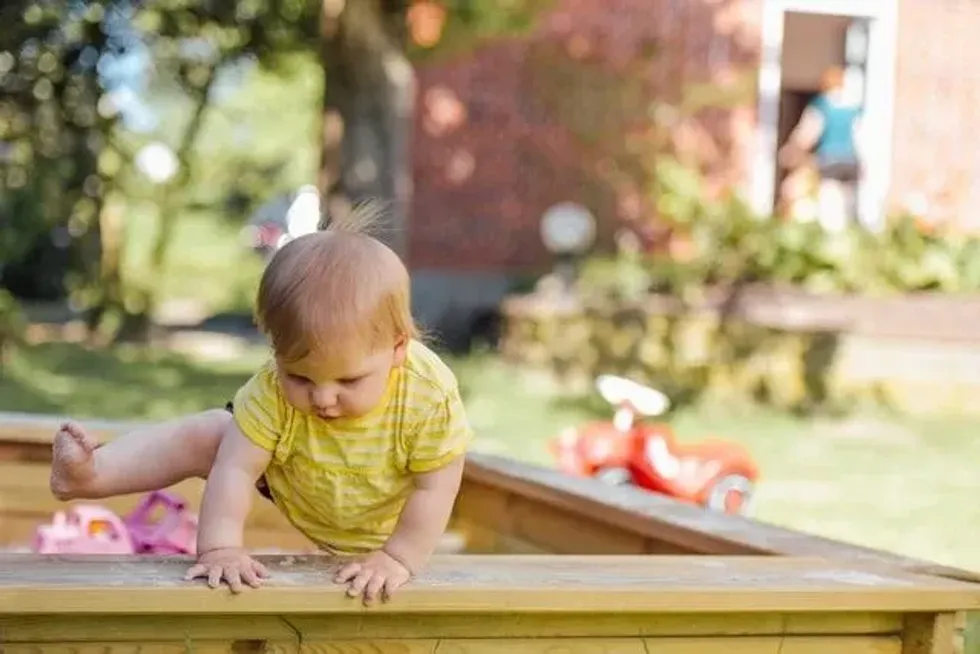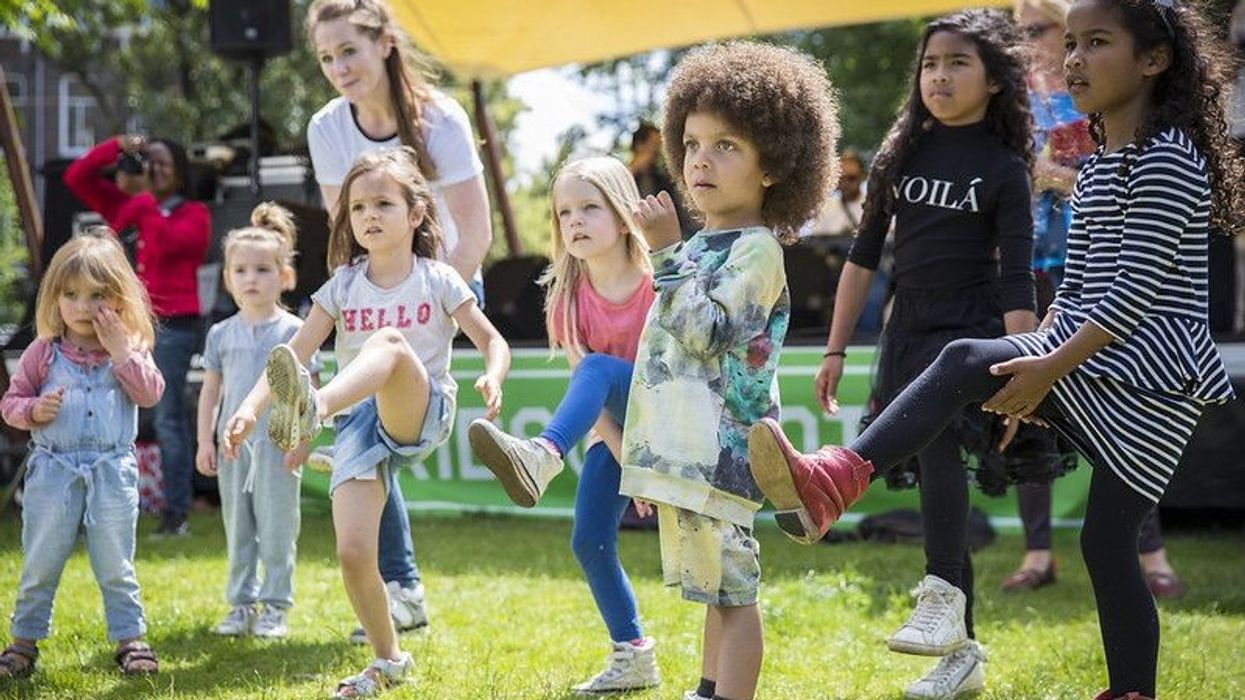As a new parent, you may be wondering: why is my 16 month old having so many tantrums, or what is the perfect 16-month-old schedule?
With that in mind, we've compiled this guide of the developmental milestones, preferences and activities for 16-month-old babies to answer any questions you might have about them! From their sleep cycle to their food intake, not forgetting temper tantrums and teething, this article should leave you clued up about your child's wants and needs.
Please note that all children develop at different paces and do not always reach the same milestones at a specific age, so do not panic if your child has not acquired all of the skills listed in this article.
This article does not aim to be an exhaustive 16-month-old development checklist, and if you are concerned about anything regarding your toddler's behavior or health, seek advice from a medical professional.
If you found this article insightful, you may enjoy this post about [19-month-old babies] or this one about what to do in case the behavior of your 3-year-old is out of control.
Sleep
At 16 months, your toddler may undergo changes in sleep patterns. Here is everything you need to know and some tips on how to manage their sleep (and yours)!
Although the 16-month-old sleeping schedule will vary, your baby will need about 11 to 14 hours of sleep a day, through naps and a night time sleep.
However, around this age they will likely be dropping down from two to a single nap per day, usually in the afternoon.
At first, the single afternoon nap may be longer to compensate, but make sure it is not taken too long and don't hesitate to cut it short; otherwise, the toddler might be reluctant to go to bed and struggle to sleep through the night.
As a benchmark, evening bedtime should be no later than four hours after the afternoon nap; dropping down to a single nap may mean that your toddler is more tired and wants to go to bed earlier than usual.
Here are some tips for parents to make bedtime easier and ensure their toddler is well rested:
1. Avoid your baby's dependance to rocking or breast/bottle feeding just before bedtime. Making them independent at bedtime means they are less likely to call you if they wake up during the night. Avoid dependency to your presence in the night by placing their favorite toy at arm's length in case they wake up.
2. Set up a quiet bedtime routine, at roughly the same time every night.
As we will explain below, 16-month-old babies love repetition and find routines comforting. Create one which suits the family and includes things like a bath, brushing their teeth, a song or a story. Keep the bedtime routine under 30 minutes so it does not become a chore and may be replicated by a babysitter or relative.
3. When phasing out the first day nap, replace it with a quiet activity such as looking at books or listening to calm music. However, avoid car rides or activities that may involve the toddler falling asleep.

Food
At the 16 month mark, it is important to introduce your toddler to as many new foods as possible, no matter how reluctant they are to this. Try and provide mostly balanced meals containing ingredients from different food groups (fruits and vegetables, cereals, dairy and meat or plant-based protein).
16-month-old children are very good at knowing how much they need to eat, so do not worry if they are seemingly very hungry one meal and leave some food the next. As a benchmark, toddlers this age need to consume about 1,000 calories a day, which may be served as three meals and two snacks.
Foods with high fat, salt or sugar content should be kept at a minimum. While it is fine to give your child crisps, ice cream, sweets or soda as a treat, this should be rare and in small doses! Similarly, restrict the amount of milk your toddler is consuming to less than a pint a day.
At this stage, you should aim to restrict your child's consumption of pureed foods, instead chopping it up into small bites they can easily eat. Likewise, this is the perfect time to introduce them to using a fork, making sure it is small and blunt in order to avoid injury.
Here are some tips to help parents navigate their child's eating habits:
1. A toddler's portion should be roughly a quarter of an adult's.
2. If your child is reluctant to try new ingredients, mix them with their favourite foods. The routine and familiarity of the foods they enjoy will comfort them and make them more receptive to trying new things.
Play And Movement
At 16 months old, a child is generally curious and loves to explore the world. They will be keen to move around and find out everything there is to know about their environment. However, they are not always the most steady, so make sure you stay nearby and have a first aid kit in case of a stumble!
Some common things your little one will try to do are climbing, dancing, walking, or running.
As with other areas of development, you will likely find that 16-months-old babies love repetition, as it brings familiarity and comfort. For this reason they will enjoy swinging and rocking as well as any activity involving repetitive movements.
Here are some tips to encourage the development of your toddler's motor skills and keep them active safely:
1. At this stage of development, toddlers will enjoy imitating their parents and surrounding adults. Play games like peekaboo to encourage this behavior! Additionally, you could show them how to play pretend games with things such as toy kitchens.
2. Around the 16 month mark, toddlers tend to want to do more than they can achieve, such as carrying heavy things or going up stairs unaided, and get frustrated when they cannot do so. Try breaking these actions into smaller tasks to make them more manageable, such as halving distances, lowering obstacles or offering a helping hand.
Communication
Although this section will give you a better understanding of what to expect in terms of language and communication from a 16-month-old toddler, be aware that there is a lot of variation between children's milestones, especially when it comes to speech.
As such, do not be worried if your little one isn't ticking every single box, as there is no strict timeline for the development of motor skills!
Nonetheless, at 16 months children will have a good understanding of most of what you say, including instructions and description. They are in what is called the "receptive language" stage.
Toddlers will be accumulating vocabulary, sentence structures and grammatical rules as they hear them. At this age toddlers will start realising you can name and label things such as objects, and may be keen to find out the words for everything.
While they can understand well, the speech of a 16-month-old child may still be unclear babbling, gibberish, or nonverbal communication such as gestures. Therefore, a 16-month-old not talking properly is not necessarily something to be worried about.
It is likely that your little one will use inflection instead of syntax, shouting something to indicate urgency for example. Their sentences will be limited to one or two words, and while they may pronounce things wrong the word order will generally be correct.
The sentences of 16-month-old toddlers will generally consist of the most important words, omitting articles and prepositions.
Thus, they might say "hungry dog!" to indicate that the dog needs feeding.
Repetition and imitation is also an important part of a 16-month-old's language development. They will likely try to repeat your own words or words they have learnt many times to strengthen their mastery of it and practice making the appropriate sounds.
At this stage of language development, you may start to see the beginning of your toddler's social interactions such as waving, saying hello and goodbye, and perhaps even please and thank you!
Here are some tips for parents to encourage the healthy communication habits of 16-month-olds:
1. Speak to your baby often and address them frequently, using varied but frequent words as they are more likely to learn them that way.
2. Name things using the correct word for them (not gibberish or invented words) and speak clearly so your child is more likely to pick up words correctly.
3. Reward correct words and sentences with positive attitudes such as smiles and affective gestures.
4. Try to count the number of words used by your toddler (even recurring gibberish words) to estimate their vocabulary size as this is a frequent question asked by pediatricians. As a baseline, a 16-month-old toddler is likely to know between 10 and 15 words.
Senses

Senses are the way 16-month-olds learn about the world and explore.
It is also how they come to understand that they are their own person. As toddlers, children often feel like you might be an extension of their being, and cannot tell the difference between themselves and others. Letting them explore their surroundings is a good way to let them realise they exist independently from you.
Here are some tips to encourage the development of your child's senses:
1. A 16-month-old baby is often fascinated by things with different textures, smells or colours, especially if they have not come across them before. The best toys for 16-month-old babies are those that encourage this sensory exploration.
2. Introduce your baby to new sounds by singing, and new smells and tastes by giving them new foods.
Anything Else To Look Out For
Below are some other significant 16-month-old milestones and behaviors you might come across in your baby.
Tantrums And A Strong Temperament
A 16-month-old baby does not know how to control or channel their anger into activities other than tantrums. Your toddler might also be prone to these behaviors as they get frustrated and cannot express their feelings.
This can lead to screaming, kicking and sometimes hitting. The key thing to remember is that this behavior is normal.
In order to cope with tantrums, calm yourself down, then give the toddler some alone time or time out. As a baseline, avoid giving in to their demands, but pick your battles: if giving them a small win will calm them down, it could be worth it.
Impulsive Behavior
Your baby is slowly learning what is allowed or not, but they still act on most of their impulses. This is not an act of defiance or rebellion, they are simply testing the limits.
To navigate this behavior, be calm and clear about how you want your baby to act. Encourage their good behavior with smiles and affective gestures, and display your discontent when they act out or break rules. That way, they will learn what is within or outside of the boundaries.
Teething
At 16 months, your toddler is likely to be developing their first teeth and the process may be painful. Symptoms of teething include crankiness, swollen gums, chewing hands or toys, loss of appetite, small fever, or drooling.
Note that teething fever should only last two to three days; any longer and you should seek medical attention for your child. Good remedies for teething are toys or necklaces that your baby can chew on or pacifiers. Avoid numbing gels or amber bracelets with small beads that they could swallow.
If you found this article about 16-month-old baby milestones helpful, then why not take a look at what to do if your 20 month old isn't talking, or our [favorite child party ideas]?










